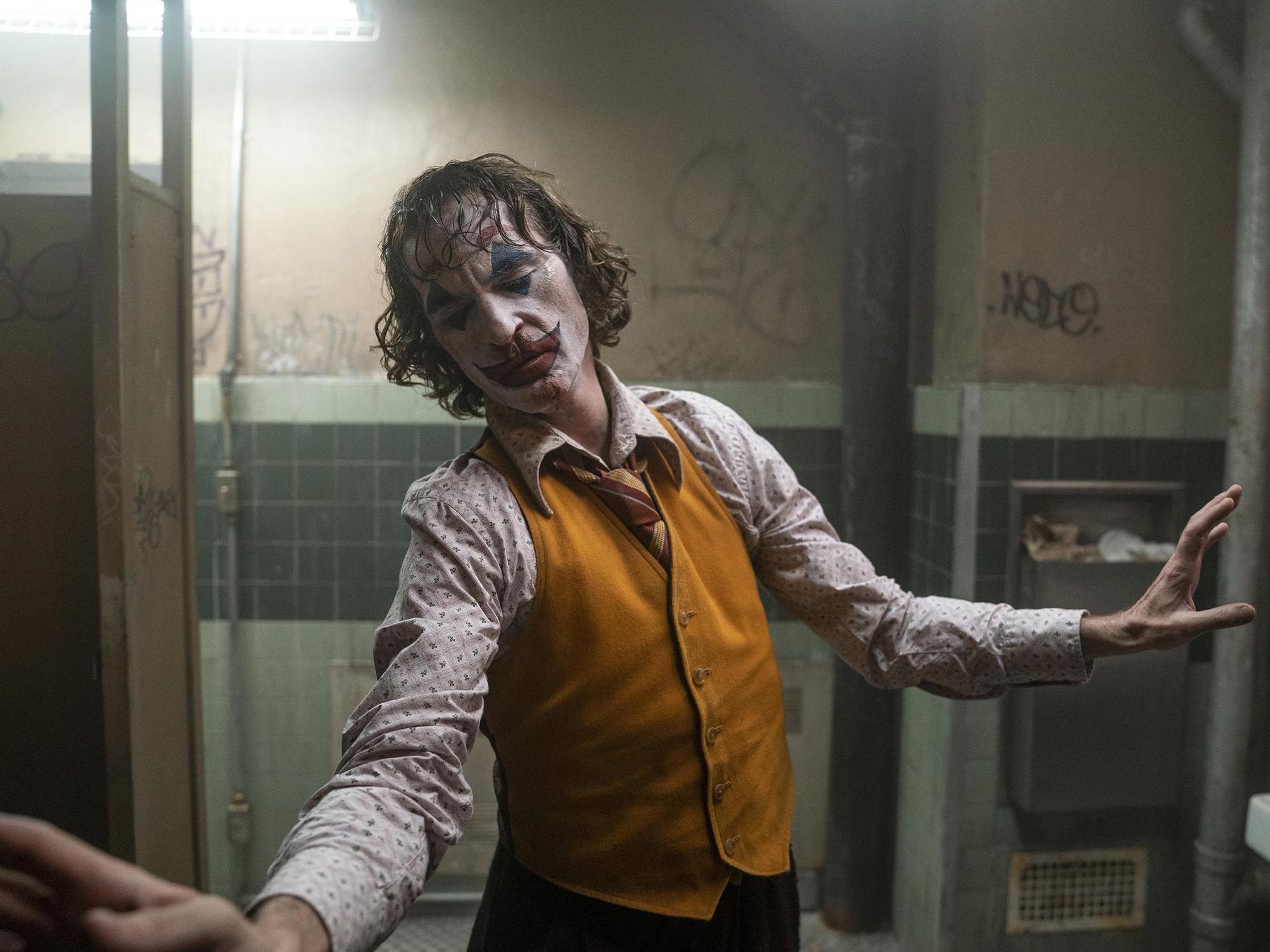'Joker' would have been a whole other story were the central character not white
Despite what director Todd Phillips wants to say about mental illness or class divisions in American society, his film is essentially a depiction of what happens when white supremacy is left unchecked, Lawrence Ware finds

Before Joker opened last weekend, much was being made of how its tale of a murderous villain echoed news stories of mass shooters and incel threats, and how the film might encourage unbalanced viewers to commit acts of violence. As it turned out, it mainly inspired audiences to open their wallets for the biggest October opening ever.
After watching the film, I could understand the concerns: Directed by Todd Phillips and starring Joaquin Phoenix as the deranged clown Arthur Fleck, the title character, Joker is simultaneously a well-made film in its own right and a blatant mashup of The King of Comedy and Taxi Driver. It nods at classism and winks at the Bruce Wayne family mythos, but at its core the movie is about a mentally ill loner.
Still, what struck me most is that what the film wants to say — about mental illness or class divisions in American society — is not as interesting as what it accidentally says about whiteness. For it is essentially a depiction of what happens when white supremacy is left unchecked. It shows the delusions that many white men have about their place in society and the brutality that can result when that place is denied.
The fact that the Joker is a white man is central to the film’s plot. A black man in Gotham City (really, New York) in 1981 suffering from the same mysterious mental illnesses as Fleck would be homeless and invisible. He wouldn’t be turned into a public figure who could incite an entire city to rise up against the wealthy. Black men dealing with Fleck’s conditions are often cast aside by society, ending up on the streets or in jail, as studies have shown.
And though Fleck says he often feels invisible, had he been black, he truly would have been — except, of course, when he came into contact with the police. They would be sure to see him.
Though Fleck is pursued and investigated by Gotham’s finest, his whiteness acts as a force field, protecting him as he engages in the violent acts of the latter half of the film. Consider his appearance on the live talk show hosted by Murray Franklin (Robert De Niro). A black man acting as strangely as Fleck does would not have been allowed to go on the air. But the white Fleck is given access, and bloodshed soon follows.

Or look at how Fleck interacts with others. He is frequently in conversation with people who occupy a lower rung in society than he does: a state-appointed therapist he sees early on; a protective mother who chastises him for playing peekaboo with her son on the bus; his possible love interest, a neighbour who lives in the same building; and the psychiatrist he sees in Arkham Asylum. Every one of these characters is a black woman with whom he eventually has confrontations. Phillips consistently places Fleck in an oppositional or antagonistic position to these women.
I don’t know if this is intentional on Phillips’ part, but it is significant. When we learn that his relationship with the neighbour (played with artful restraint by Zazie Beetz) was merely a figment of his troubled imagination, the way he leaves the apartment implies that this realisation has led Fleck to kill her and perhaps her child. After his final conversation with the Arkham doctor, his bloody footsteps suggest that he kills her as well.
Fleck kills white men because he cannot access their status and is ostracised by them, but his black female victims are so invisible that the film does not bother to show their deaths. We as viewers can and should take note of them.

Watch Apple TV+ free for 7 day
New subscribers only. £9.99/mo. after free trial. Plan auto-renews until cancelled.
ADVERTISEMENT. If you sign up to this service we will earn commission. This revenue helps to fund journalism across The Independent.

Watch Apple TV+ free for 7 day
New subscribers only. £9.99/mo. after free trial. Plan auto-renews until cancelled.
ADVERTISEMENT. If you sign up to this service we will earn commission. This revenue helps to fund journalism across The Independent.
There are other ways that whiteness informs Fleck’s character. He anticipates he’ll be treated as a son by the Wayne family, and assumes he’ll be given medical records just by asking the hospital orderly (played by the great Brian Tyree Henry). The privileges that come with Fleck’s race set him up for these unrealistic expectations. When they’re not met, the consequences are deadly.
Whiteness may not have been on the filmmakers’ minds when they made Joker, but it is the hidden accomplice that fosters the violence on screen.
The New York Times
Join our commenting forum
Join thought-provoking conversations, follow other Independent readers and see their replies
Comments
Bookmark popover
Removed from bookmarks